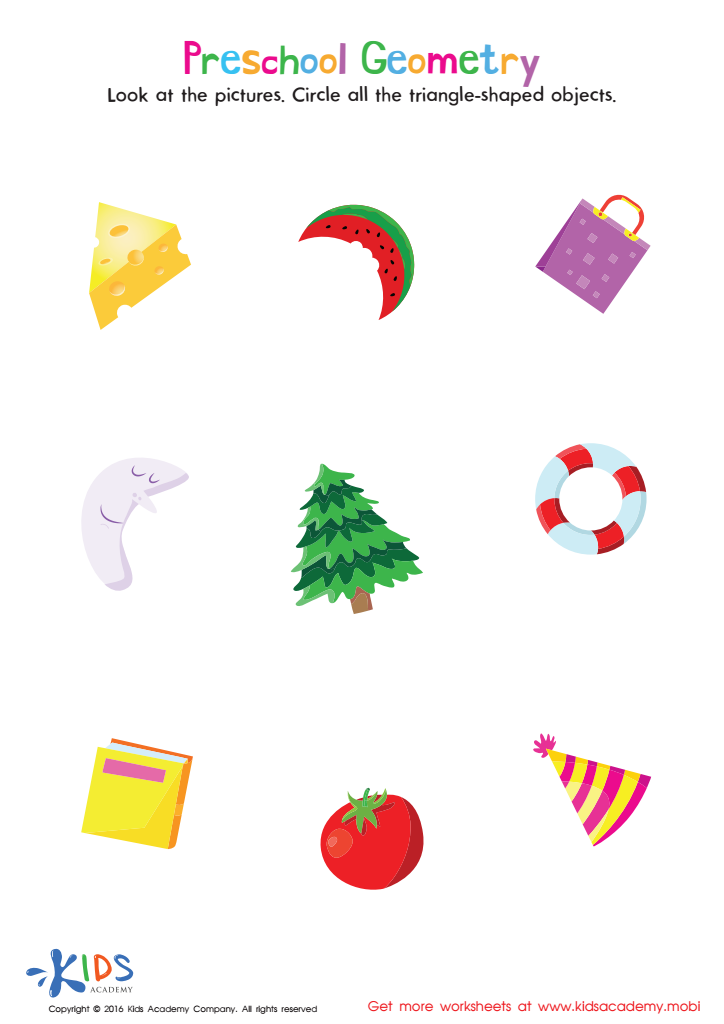Counting skills Geometry Worksheets
15 filtered results
-
From - To
Enhance your students’ learning experience with our Counting Skills Geometry Worksheets! Designed for early grade learners, these engaging activities combine counting practice with essential geometry concepts. Each worksheet encourages kids to identify shapes and patterns while developing their number sense. Through fun and interactive exercises, children will count various geometric figures, reinforcing their understanding of both counting and spatial awareness. Perfect for classroom use or at-home practice, our worksheets adapt to various learning styles. Foster a love for math and geometry in your young learners with these educational tools that make mastering counting skills enjoyable and effective!
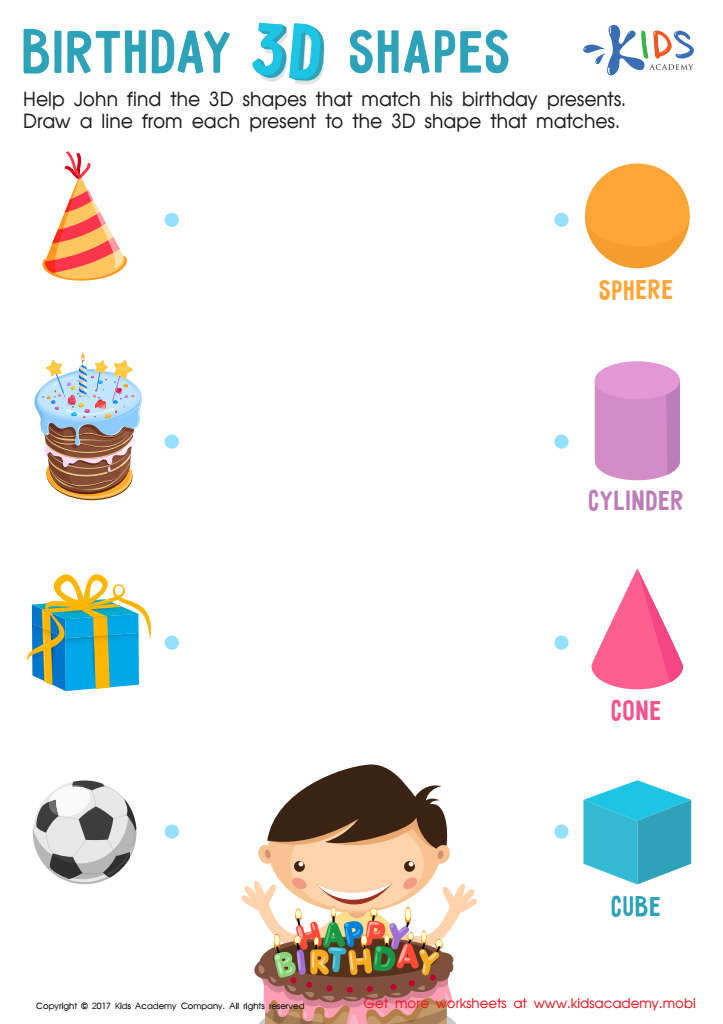

Birthday 3D Shapes Worksheet
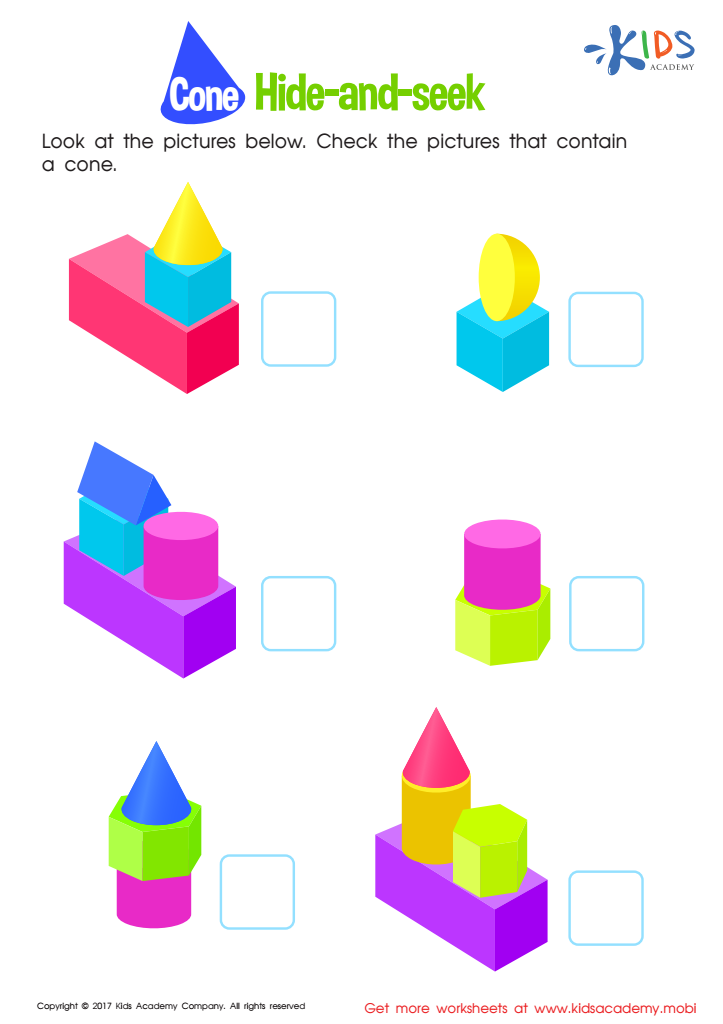

Cone Hide-and-Seek Worksheet
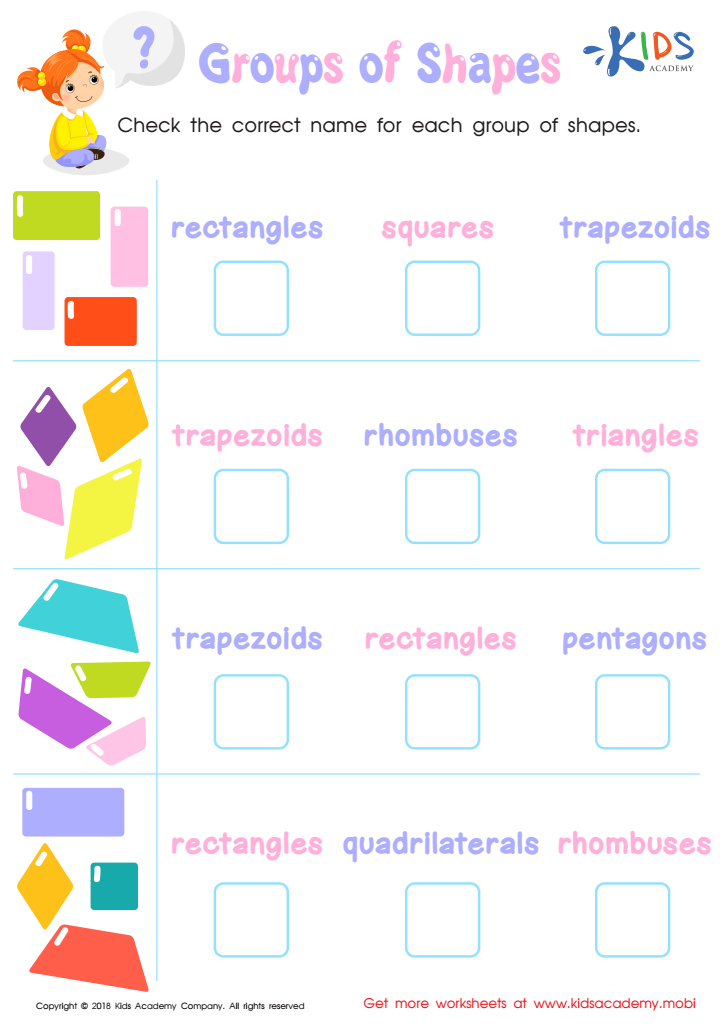

Groups of Shapes Worksheet
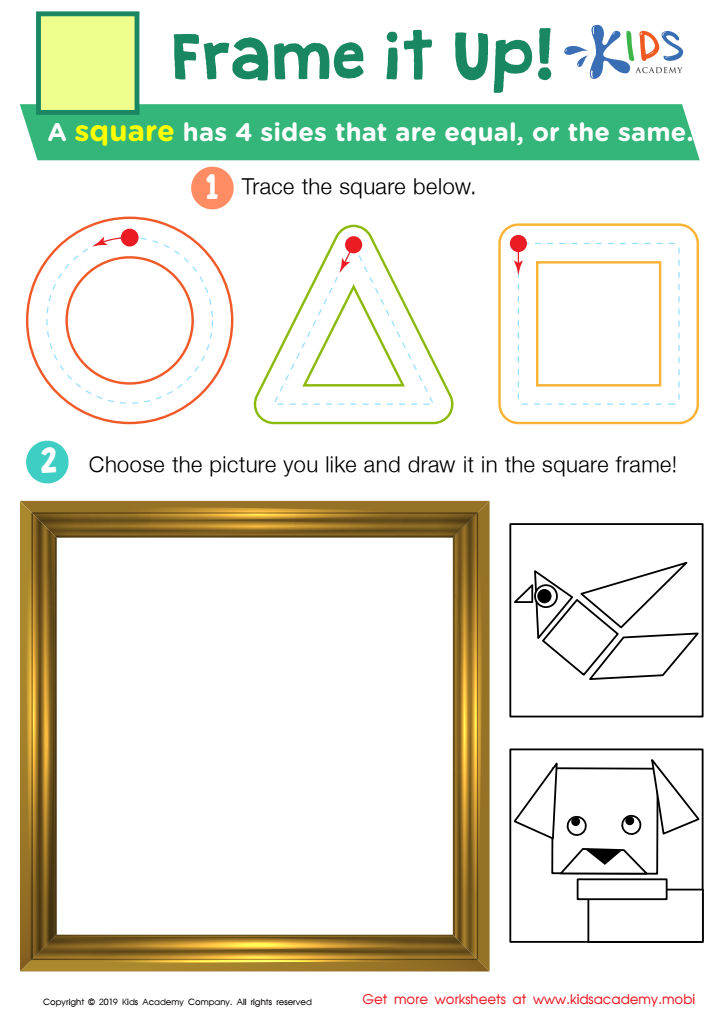

Frame it Up Worksheet
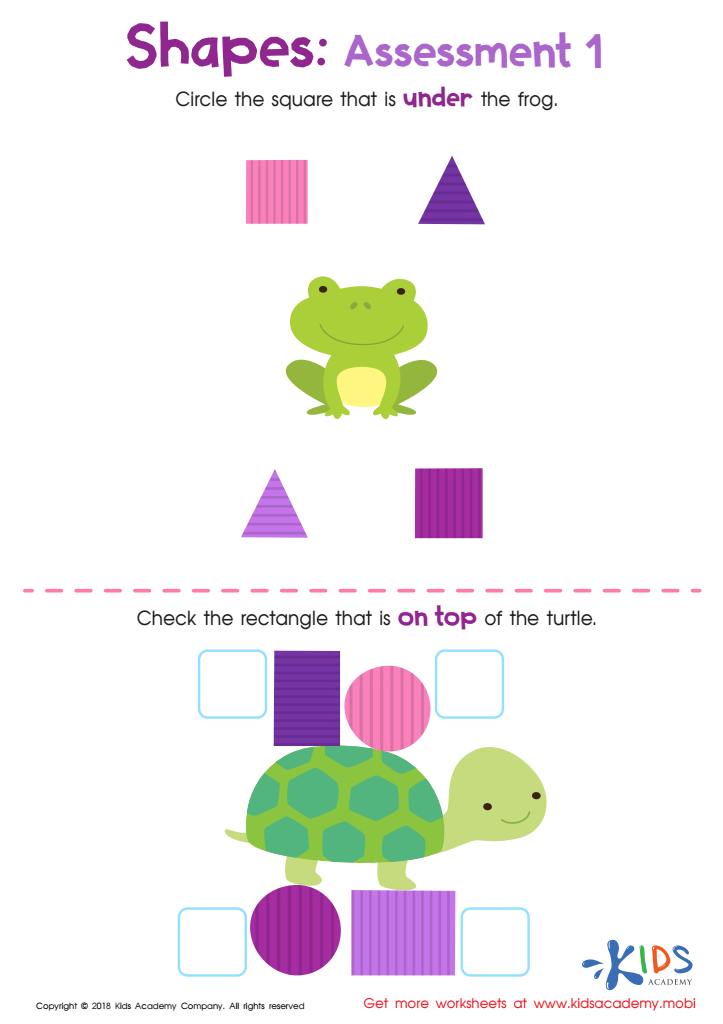

Geometry – Assessment 1 Worksheet
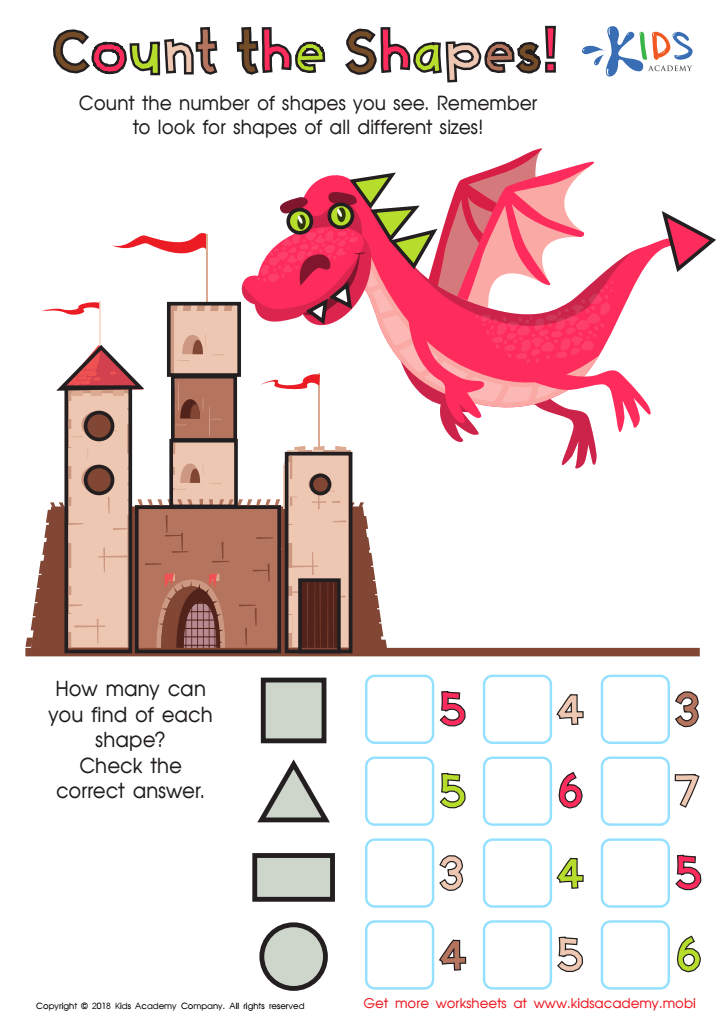

Count the Shapes Worksheet
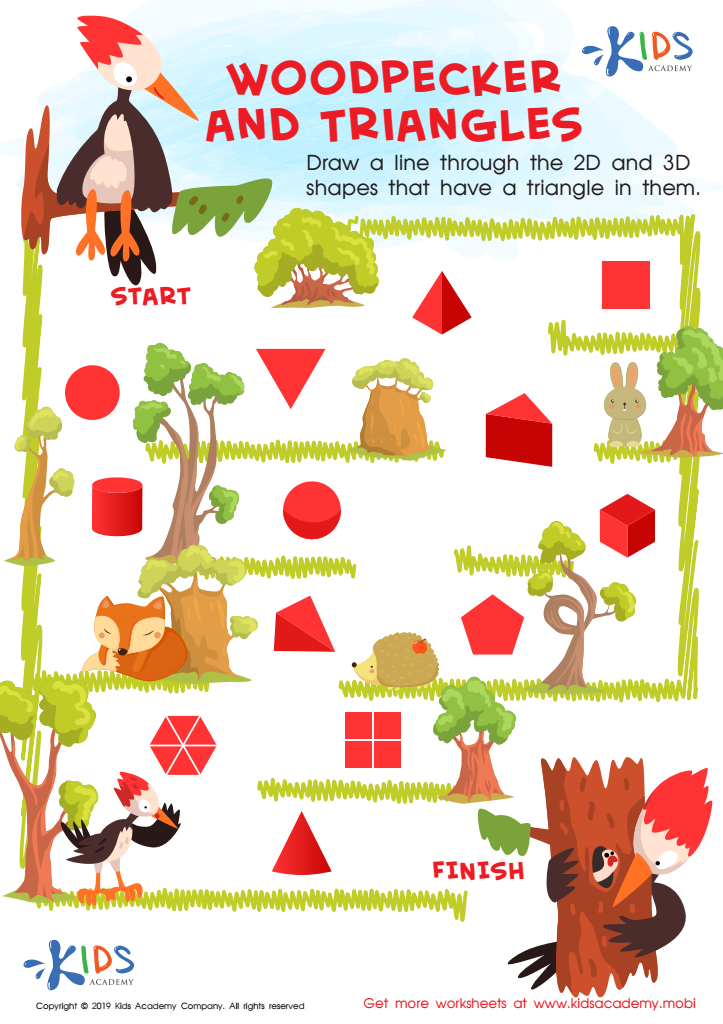

Woodpecker and Triangles Worksheet
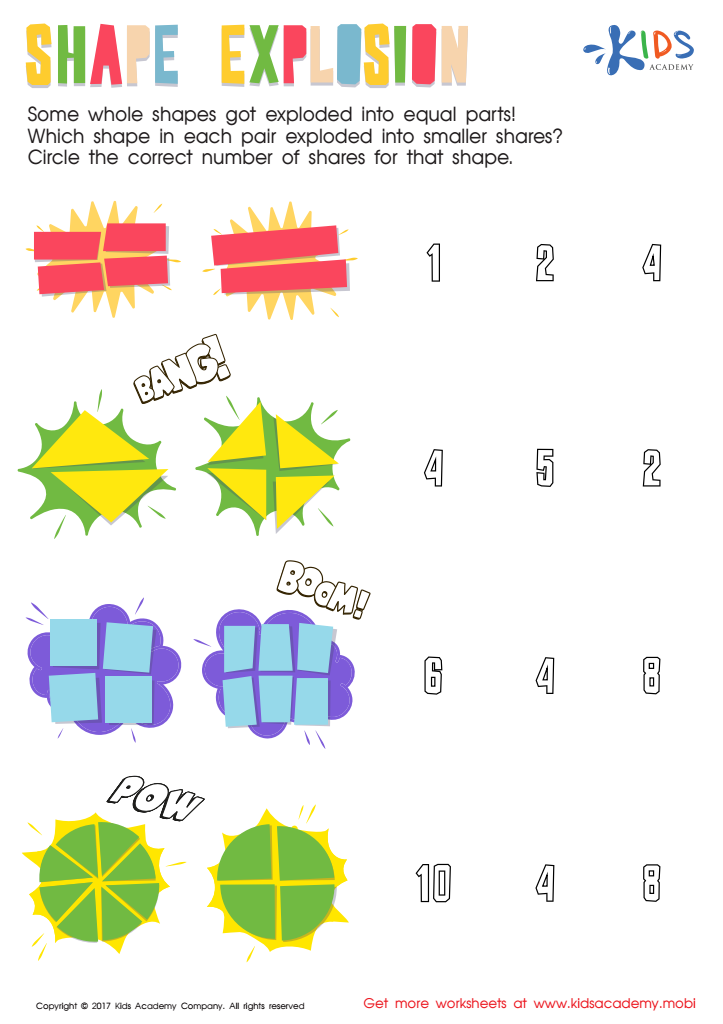

Shape Explosion Worksheet
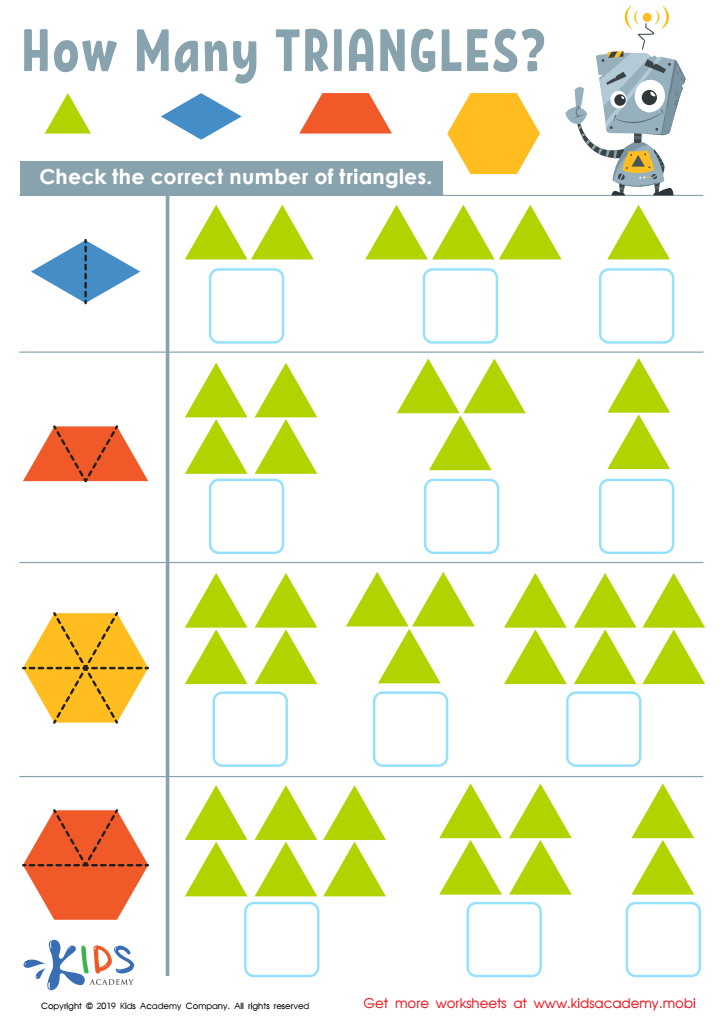

How Many Triangles Worksheet
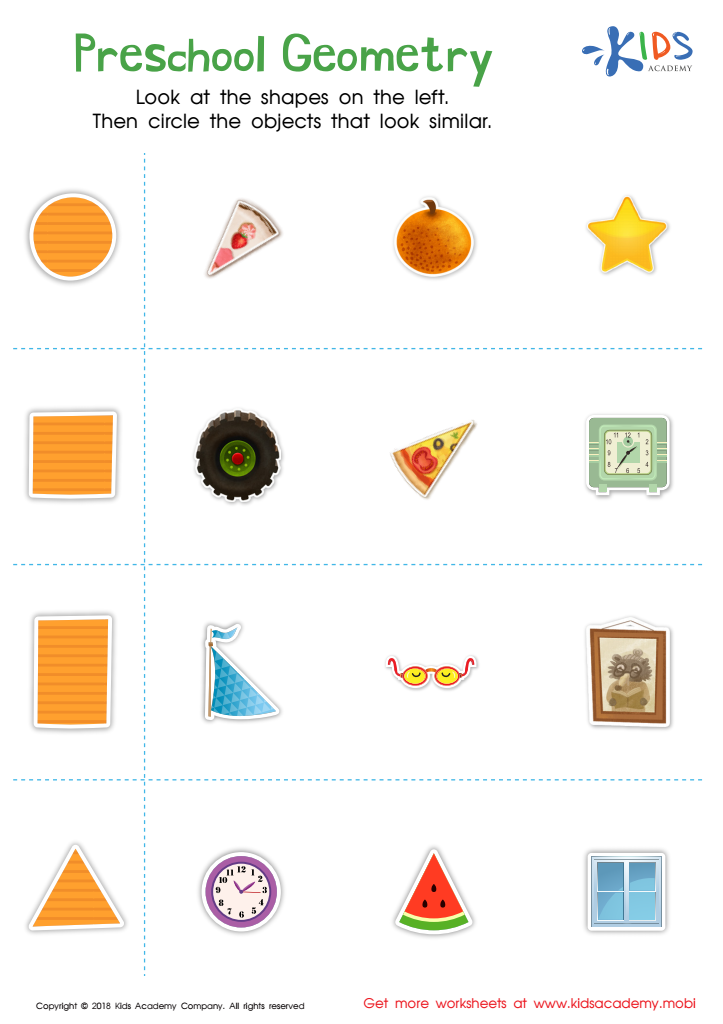

Preschool Geometry Worksheet
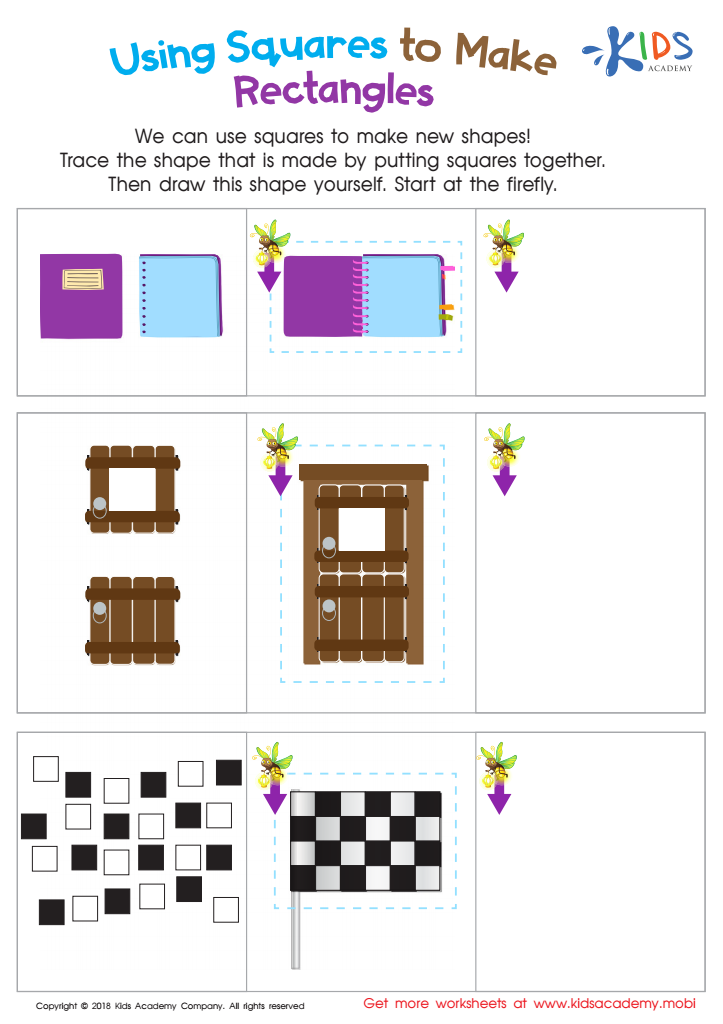

Using Squares to Make Rectangles Worksheet
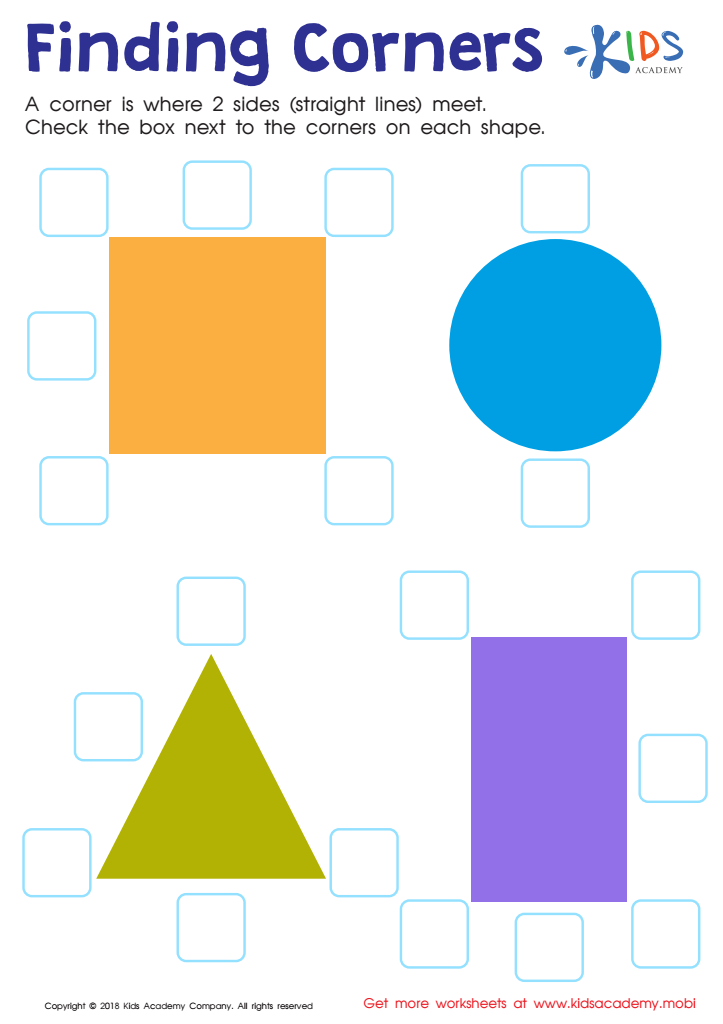

Finding Corners Worksheet
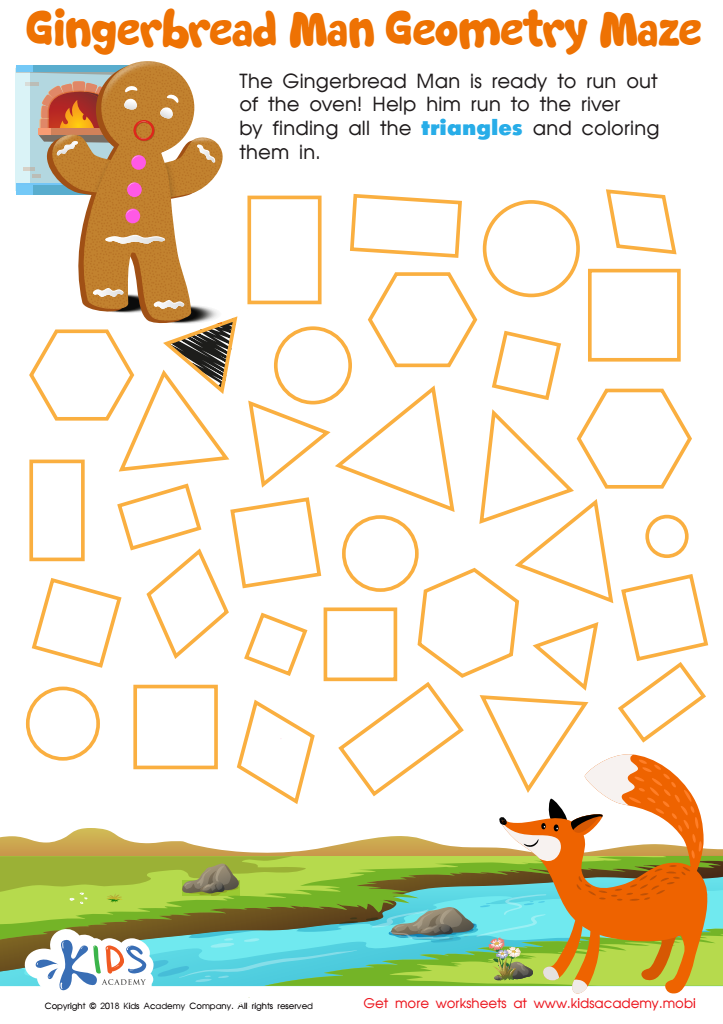

Gingerbread Man Geometry Maze Worksheet
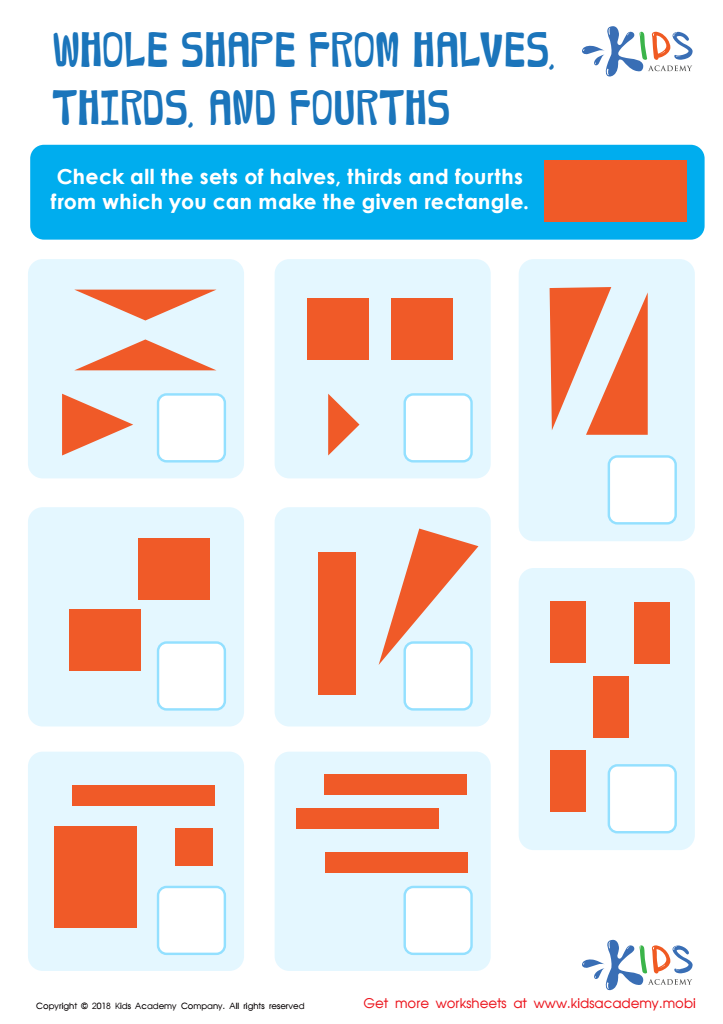

Whole Shape from Halves, Thirds and Fourths Worksheet
Counting skills and geometry are foundational components of early mathematics education that significantly impact a child's cognitive development and future academic success. These skills support problem-solving and critical thinking, allowing children to understand and engage with the world around them.
Counting skills help children grasp the concept of numbers, fosters numerical fluency, and lays the groundwork for arithmetic operations. When children learn to count, they develop their ability to quantify and categorize, essential for various everyday tasks and future studies in mathematics.
Geometry introduces children to shapes, spatial reasoning, and measurements. Understanding geometric concepts aids in developing visualization skills, which are vital for problem-solving across disciplines, including science and engineering. Through geometry, children learn to identify patterns and make connections between the physical world and mathematical concepts.
Additionally, early mastery of these skills promotes confidence in mathematics, reducing math anxiety as students progress through their education. Engaging students in activities that enhance counting and geometric understanding encourages active learning and creativity. Ultimately, parents and teachers should prioritize these skills to nurture a well-rounded education, ensuring children are prepared for complex mathematical concepts they will encounter later in their academic journey.
 Assign to My Students
Assign to My Students










